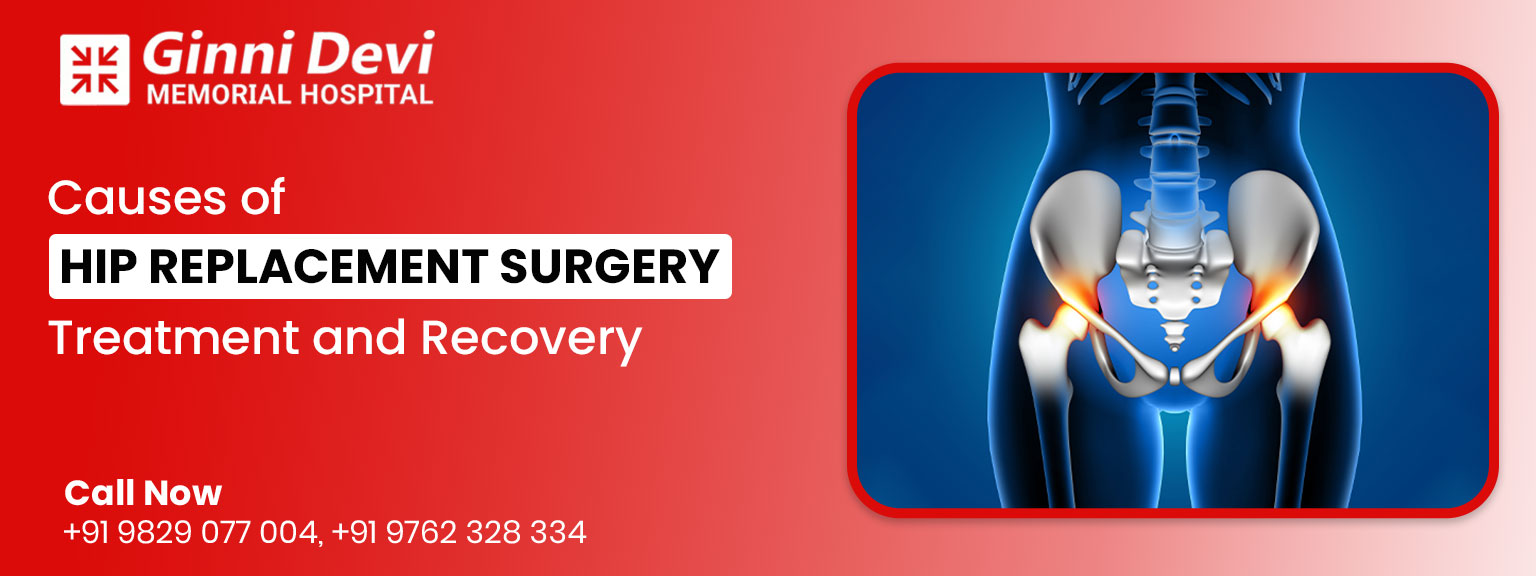Hip replacement is one of the surgical interventions done for people suffering from arthritis, old age, and severe pain in the hip. This treatment is taken into consideration when other treatments do not work, like when you have tried everything—physiotherapy, lifestyle modification, and medication—but “no longer helping,” then your surgeon may make a referral for hip replacement surgery. But first, we must learn the causes of hip replacement surgery, the available treatment, and the recovery process so you can decide.
What is hip replacement surgery?
Hip replacement is a surgery that leads to the elimination of the damaged or worn-out hip bone surface and instead fits artificial parts (implants), usually a combination of ceramic, metal, or plastic. The goal of this surgical procedure is to allow patients to move freely and live the life they want.
Causes of hip replacement surgery
- Osteoarthritis: It is the most common cause of hip replacement surgery. It is commonly known as wear and tear arthritis, where the protective cartilage in the hip joint breaks down. It affects mostly people who are 50 and above. Left untreated, it can lead to being unable to perform activities, joint deformity, etc.
- Rheumatoid arthritis: It is an autoimmune disease in which the body’s immune system attacks the joints, including the hip joint. Surgery is needed to eliminate the symptoms.
- Osteonecrosis: This condition arises when blood flow to the bone stops or slows down. And without enough blood, bone can die. It can be caused by a fracture or dislocation, which disrupts the blood supply to the bone.
- Hip Dysplasia: This problem can be present since birth. Some people are born with abnormalities in their hip joints. The symptoms can develop over time. If left untreated, it can lead to joint damage and trouble walking at a young age.
What are the treatments available for hip pain?
If any treatment does not work, then the hip replacement surgeon in Jaipur opts for hip replacement surgery. Hip replacement surgery is done in different ways.
Total hip replacement: If both of your hips are damaged, then the entire hip joint is replaced with artificial joints. This is done in the cases of severe arthritis, major damage to the hip joint, and severe injury to your hips. Moreover, it’s highly successful and provides long-term relief.
Partial hip replacement: Where only the ball part of the hip joint is replaced, and no change in the socket. It is mostly needed for older patients and if the persons have a fracture. It’s a shorter surgery than total hip replacement.
Hip resurfacing surgery: In this, the doctor does not remove your entire ball of the hip; the surgeon trims only the damaged bone and covers it with the metal surface. This is what hip resurfacing is. Majorly, this surgery is used for younger patients in the early stage of arthritis.
Hip arthroscopy: It’s a minimally invasive surgery in which a small camera is inserted with instruments through a small incision to repair the hip. It is beneficial for those who are diagnosed with early hip problems at an early stage or for the person who has labral tears, cartilage damage, or an abnormal bone shape. Moreover, it has benefits too, like less pain, faster recovery, and small scars.
Recovery from Hip Replacement
The hip replacement recovery depends on the person or on their health conditions. But because of Ginni Devi Memorial Hospital, a leading hip replacement hospital in Jaipur, the recovery process is made easier because of their advanced facilities and advanced surgery tools with expert care.
- You have to stay in the hospital for 2-5 days.
- After discharge, in 1-2 weeks, use a walker; keep your wound clean and dry; and avoid bending, crossing legs, etc.
- In weeks 3-4, your mobility starts to improve so that you can use a walker without anyone’s support, and pain is mild and manageable.
- In weeks 5-6, you start to gain strength, like you can switch from a walker to a stick, and also do some light household activities.
- Then, after 90 days, you can go back to your daily routine, but a follow-up with a doctor is a must while doing any activities.
Conclusion
Opting for a hip replacement surgery is a very crucial decision because not only your life but also your loved ones’ lives depend on it. So it is better to be treated at a leading hospital like Ginni Devi Memorial Hospital, a Best Orthopedic hospital in Jaipur, for advanced and expert care.




